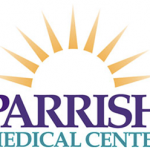Although it once was considered a greater health risk to men, heart disease now is the top cause of death in the U.S. among men and women equally. But while men and women are both likely to feel uncertain about what chest pain means, women take longer to seek medical attention, according to a recent Harvard School of Public Health study. Compared with men, women were one-and-a-half times more likely to wait.
Women should learn the warning signs of an impending heart attack. A month before a heart attack, common symptoms include unusual fatigue, sleep disturbances, shortness of breath, indigestion, anxiety, the heart racing, and the arms feeling weak or heavy.

During a heart attack, women feel shortness of breath, weakness, unusual fatigue, a cold sweat, dizziness, nausea, and weak-feeling arms. They may feel pain in their abdomen, neck or shoulders. Unlike in men, women do not often feel a sudden, overwhelming chest pain during a heart attack. If there are symptoms in the chest, in women it is more subtle feelings of pressure, aches, or tightness rather than pain.
We promote you taking care of your health to prevent the risk of a heart attack, however, in the case of an emergency we are prepared to help. Experts in the Art of Healing Your Heart, Parrish Medical Center is now using an FDA-approved device to treat some heart attack patients. PMC’s first Impella CP heart pump™ patient was treated well under national benchmarks of 90 minutes from arrival in the emergency room to the time the coronary artery was opened (door-to-balloon time.).
The Impella™ is an advanced cardiac assist device that pumps for the heart. It allows the heart to rest during stent placement or balloon angioplasty. The device is inserted via catheter in the patient’s femoral artery.
“It is extremely gratifying to us to be able to provide this best practice for our community,” said George Mikitarian, Parrish Medical Center | Parrish Healthcare president/CEO. “Use of the Impella™ allows more patients with severe heart damage to go home to their loved ones with their own heart.”
According to Parrish Medical Center’s 2019 Community Needs Health Assessment, more than 90% of adults in North Brevard report one or more cardiovascular risk factors. Risk factors include being overweight, smoking cigarettes, being physically inactive or having high blood pressure or cholesterol.
The Florida Department of Health attribute 2 out of 10 deaths in Florida to heart disease and it is the number one killer in the U.S.
While, to date, over 50,000 patients have been treated with Impella in the United States, Impella is currently used in only 1 percent of percutaneous coronary interventions. As a result, tens of thousands of patients remain undertreated and potentially unaware of the procedural options Impella can afford physicians.
Know Your Warning Signs
Chest pain, known as angina, includes feeling pressure, tightness, or a burning sensation in the chest. It can warn of a future heart attack. Here are six stages of reaction to angina:
- A period of uncertainty, when the discomfort may be thought to be due to something else, such as indigestion
- Being in denial and dismissive of symptoms
- A period when family members are consulted
- Recognition of symptoms and feeling defeat
- Seeking medical care
- Acceptance of the condition
Are you at risk?
Learn more about your risk for heart disease by taking our heart risk assessment at parrishhealthcare.com/heartaware, then talk with your doctor about your heart attack risk.

Parrish Medical Center
Parrish Medical Center (PMC) is a public, not-for-profit acute care healing hospital with 210 beds located on the Space Coast of Florida.
www.parrishhealthcare.com




